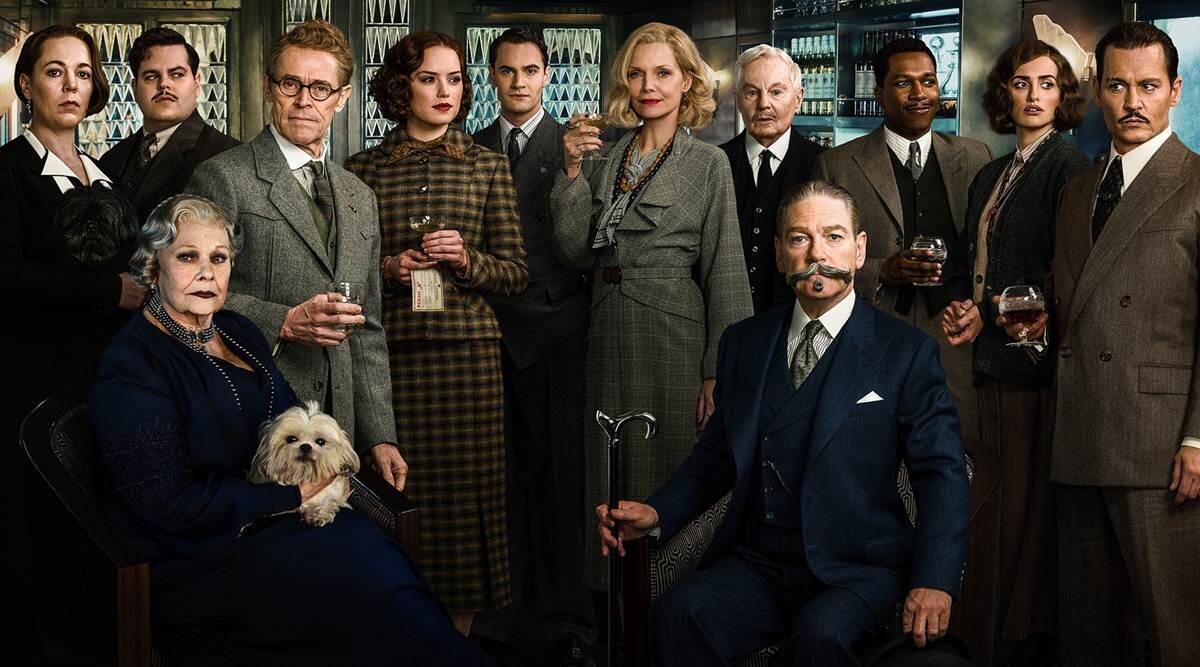Review: Murder on the Orient Express
The latest adaptation of Agatha Christie’s Murder on the Orient Express is a rich affair, which benefits from some modern visual flair while maintaining the complex story that cements it as a mystery classic.
Kenneth Branagh both directs the film and stars as the main character, eccentric Belgian detective Hercule Poirot. On his way to London from Jerusalem onboard the lavishly furnished Orient Express, Poirot finds himself sharing a compartment with a diverse array of wealthy passengers, including shady art dealer Samuel Ratchett (Johnny Depp), who attempts to recruit Poirot in finding who has been leaving threatening anonymous letters in his room. Poirot refuses, and the following morning Ratchett is found dead in his bunk, with violent stab wounds across his body. When they become stranded in the frozen mountains due to an avalanche, Poirot must find clues from the testimonies of the other passengers, and he pieces together a dark, complex narrative as the travelers begin to grow restless.
Murder on the Orient Express boasts a star-studded cast, who together succeed in bringing the array of written characters to life on the big screen. The characters, while still adhering to easily remembered designations (the governess, the count, and so on) quickly reveal their depth after the murder is committed, and from there the plot thickens at a considerable rate. The film intersperses screentime among the characters so that it is easy for any of them to become the prime suspect. Poirot is charming as the impossibly well-informed interbellum detective, who finds his exceedingly rational beliefs about a right/wrong dichotomy shaken as ties to a gruesome earlier murder are revealed.
While the film does suffer from the usual condensed aspects of any book adaptation, it still makes good use of modern technology and social perspectives. The creative screen direction and rich visuals support the film during slower moments and complement it during the climactic ones. The casting choices toy with the pre-WWII racial stereotyping blatant in Christie’s original writing. The short fight scenes may seem gratuitous to hardcore fans of the novel, but they certainly don’t take anything away from the story. Besides, the climactic reveal of the culprit after multiple red herrings is both unexpected and immensely satisfying, and succeeds in ending the story on a thoughtful, solemn philosophical note.
Of course, for those whom the conclusion is already foregone, watching the suspenseful events pan out may feel unfortunately trite. Nonetheless, this adaptation of Agatha Christie’s Murder on the Orient Express proves the timeless resonance of a trope-subverting murder mystery despite a few creative liberties.
